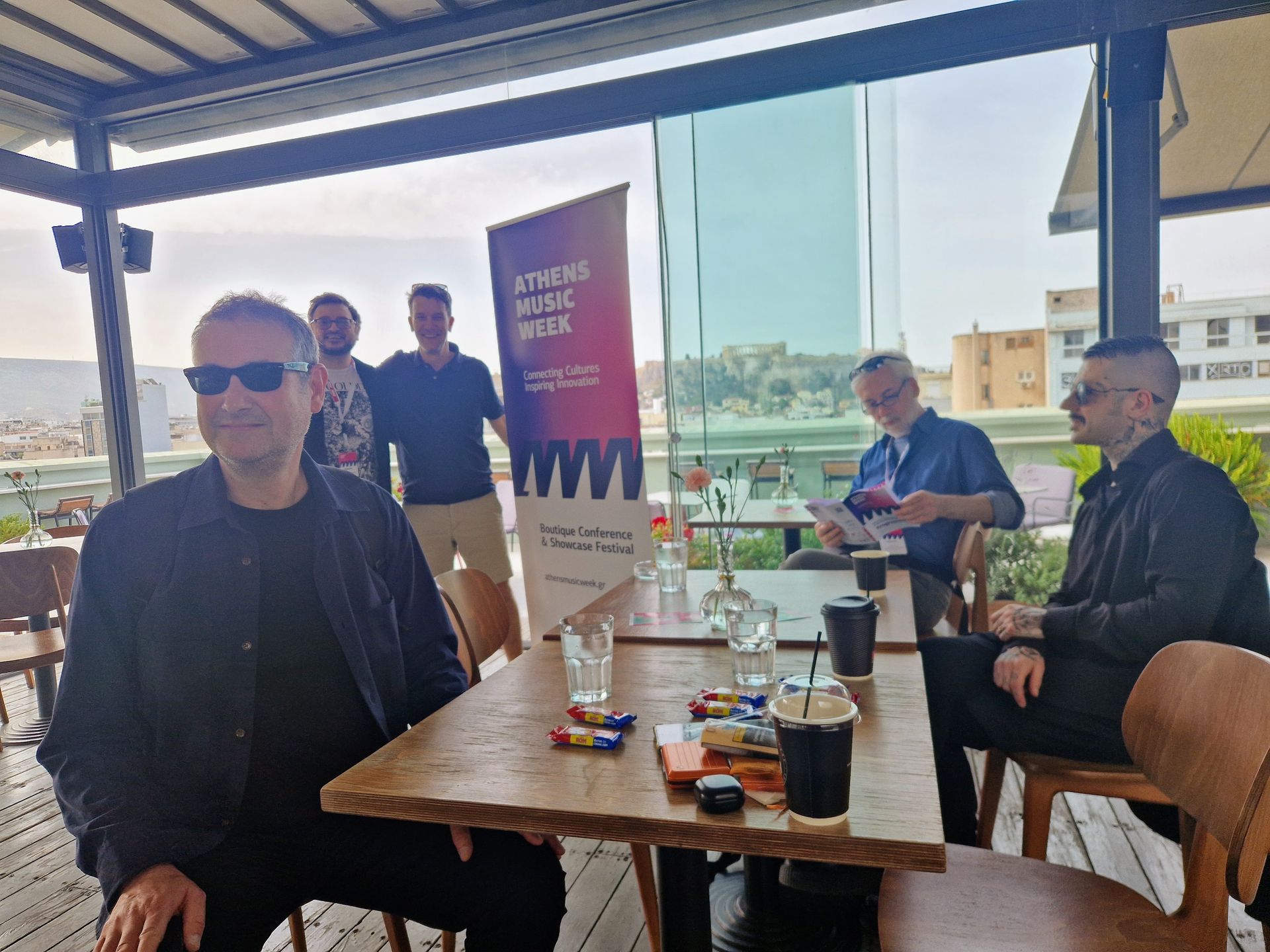Funding and entrepreneurship in music: real advice for creators and startups

Whether you’re planning a debut release, running an independent label, launching a festival, or building a music-tech startup, knowing when and how to access funding is critical. This blog is based on Funding & entrepreneurship in music: From idea to impact, a panel I moderated at Athens Music Week 2025.
I work with a wide range of music professionals, startups, and creative entrepreneurs, so I see first-hand how complex this space can be – especially when funding and business development are concerned. My goal for the session was to create a practical, honest conversation that would help demystify funding in the music and music-tech sectors.
We aimed to cut through vague advice and instead offer real insight into what works, what’s available, and what needs to be in place before chasing funding. Whether you’re at the start of an idea or already running something, these are key questions I help many of my clients navigate.
Speakers
- Mara Doukidi – Creative & Startup Teams Growth Specialist, ACEin
- Marko Anastasov – CEO, MUZE Corp.
- Andreas Stefanidis – President, Academy of Entrepreneurship
- Yannis Iliopoulos – Senior Programmes Manager, ICMP London / Founder, The Sound of Everything
Moderator:
Mandy Salem-Aubry – Founder, MSA Music Services / Conference Programme Coordinator, Athens Music Week

What we covered
1. Do you actually need funding – and what for?
Not all music projects need investment. Sometimes validation, support, or clearer structure should come first. If you’re seeking funding to cover basic running costs or salaries, it may be too early. The panel emphasised that funding should support growth – not simply keep something going.
2. What validation do funders expect?
Funders – whether public bodies, incubators, or private investors – want to see evidence. That includes demand, traction, or early success stories. The panel underlined the importance of clear KPIs, realistic projections, and a focused plan for how funds will be used.
3. What are the key funding routes for music projects?
The panel outlined several funding pathways available to music businesses and creative professionals:
- EU programmes like Erasmus for Young Entrepreneurs and EIT Culture & Creativity
- National and regional support for cultural startups
- Incubators and accelerators, such as ACEin in Athens
- Private and angel investment, particularly for scalable music or tech ventures
Whether you’re developing a music-tech solution, launching a sync agency, or expanding a label, there’s more support out there than many realise – if you know where to look and how to position yourself.
4. Common red flags when applying for funding
The panel flagged several pitfalls: vague plans, inflated budgets, no real sense of how the funds will be used, or unrealistic expectations. Funders are wary of generic language like “we’ll spend it on marketing” unless it’s backed by a clear strategy.

5. Tools and organisations that can support you
We discussed a range of programmes and organisations that help turn music ideas into real businesses:
- ACEin and similar incubators
- Academic bridges like ICMP London that connect education and entrepreneurship
- Non-profit and public sector support, such as the Academy of Entrepreneurship
- EU schemes that encourage exchange, learning, and development
These aren’t just for tech founders. Artists, label teams, and music professionals can all benefit from targeted support if they have the right setup.
6. What does sustainable entrepreneurship in music look like?
It’s not always about fast growth or scale. Building with intention, working within your values, and knowing when collaboration or slower progress is the better path – these are all valid strategies. The panellists spoke about resilience, community impact, and staying focused on long-term goals.
7. How to approach funders and partners
If you’re preparing a pitch or application, think like the person reviewing it. Be specific. Know your ask. Show why it matters. The panel shared examples of good and bad approaches – including why sending a deck too early, or with little context, usually doesn’t help.

8. Final advice for music entrepreneurs
- Not every idea will get funding – but your skills may still open doors.
- Focus on partnerships, clarity, and consistent learning.
- Be honest about the journey – entrepreneurship is not the only valid path.
- Build from where you are, using the tools available.
Closing thoughts
The panel reinforced that there’s no one-size-fits-all route to building a successful music business. But with the right preparation, and a clear sense of purpose, you can make use of what’s out there and move with intention.
Thanks to Marko, Andreas, Yannis, and Mara for their insight, and to the audience for the thoughtful questions. If you’re figuring out how to grow or fund your next move in music, whether as an artist, label, or startup founder, I’d be happy to hear from you. You can find out more about my work via MSA Music Services.
For a related perspective, you might also like my post on how music startups can network and build industry connections.
It covers:
- Choosing the right events for your stage and goals.
- Practical strategies for starting conversations and following up.
- Tips on preparation, from setting clear objectives to tailoring your pitch.
- Advice on turning introductions into lasting partnerships.
If you’re wondering how to leverage face‑to‑face gatherings to find mentors, partners, or funders, that post will give you a clear roadmap.

